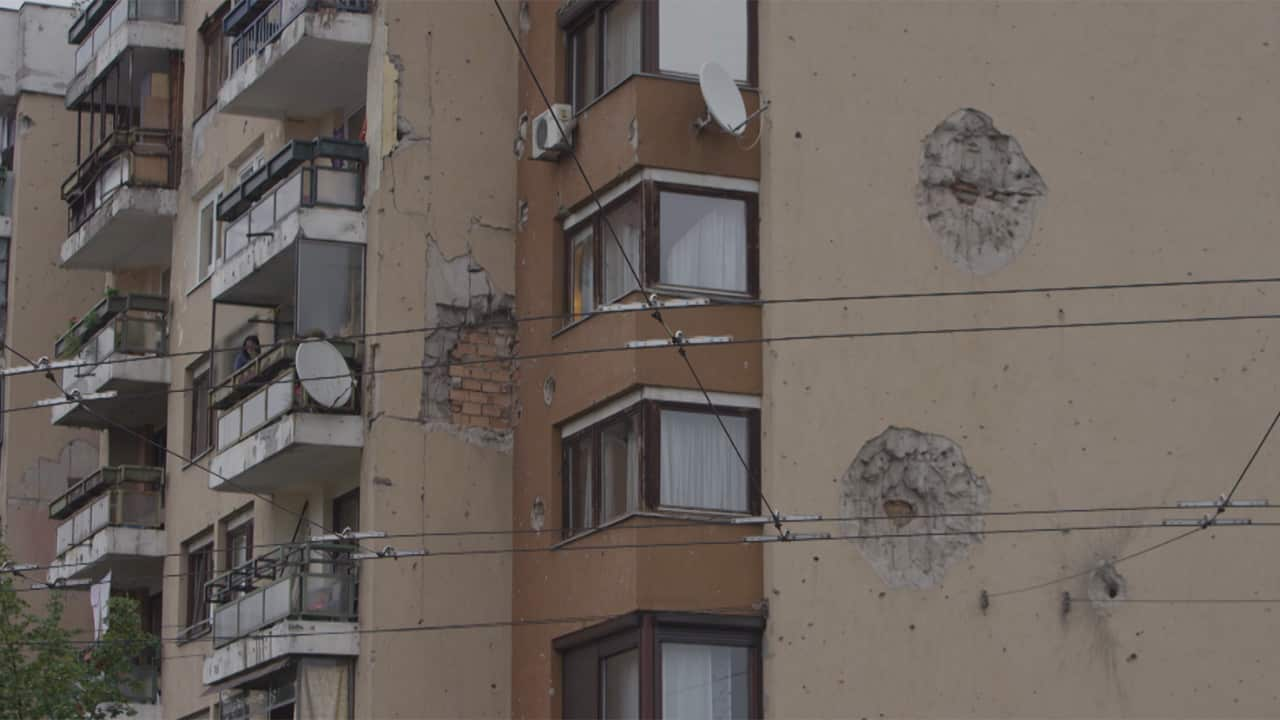I was born in Bosnia and Herzegovina to a Muslim mother and a Serb father. That was no extraordinary event in the 1980s when my parents walked down the aisle. 40 per cent of all marriages in urban centres at that time were ethnically mixed.
Yet just 10 years later and it would be. By then Bosnia was being torn apart along ethnic lines. Bosnian Serb leader Radovan Karadžić dreamt of creating a Bosnia for ethnic Serbs alone.
His forces, with the backing of Belgrade, orchestrated a war that led to the deaths of more than 100,000 Bosnians and displacement of half the country’s population.

My family was forced to flee Sarajevo. Two of my cousins Omer and Ibrahim were less lucky. They were murdered.
They were ten and twelve-years-old, and they were slaughtered because they had ethnically ‘wrong’ names.
In 1992 in their hometown of Nevesinje, Serbs murdered 301 Bosniaks in two months.
Neighbours were killing neighbours and the multiethnic Bosnia my parents had known was now infamous for ethnic cleansing and genocide.
That was two decades ago. The conflict ended with the signing of the Dayton Agreement in 1995 and so last month I returned to Bosnia with Dateline reporter David Corlett looking for green shoots of healing and recovery.
Sadly, what I found was a country still bitterly divided.
Most Bosnians I met, frustrated and in despair, gave me a simple but common piece of advice.
“Do not come back to Bosnia to live or work. Stay put wherever you are!”
Much of the criticism I encountered related to the 1995 Dayton Agreement. While it helped end the war, it also created new obstacles that remain in the way of reconciliation.
The agreement partitioned the Republic of Bosnia and Herzegovina along ethnic lines into two quasi-states with their own parliaments, the Serb Republic and the Bosniak-Croat Federation.
Not only did this entrench ethnic divisions, it also created a complex, multi-layered government. Bosnia has become famed for its red tape and bureaucratic paralysis.
Many also criticised the process of privatisation of state assets during the country’s transition from a socialist to capitalist economy. Critics say the assets were sold to entrepreneurs below market price, while other large factories were dismantled for quick profit.
As a result, 43 per cent of Bosnians are currently unemployed and job security is scarce. With the country’s economy propped up by cash sent in from expat Bosnians around the globe, many young people dream of leaving the country.
Rather than reform the country’s political system, politicians are masking the problems by once again stirring up ethnic divisions. This has even gone so far as the establishment of segregated schools, denial in many quarters that the genocide even took place and open calls for secession.
Yet, out of the gloom, I also got a glimpse of how the country could begin to heal. One of the reasons for my trip was to see an old friend and activist.
Sudbin Musić had fled to Germany during the conflict but returned to Bosnia and his native town of Prijedor. Musić gave up the safety of Germany to revisit a town where local Serb authorities began a program of systematic ethnic killings.
They killed 3,173 non-Serbs (mostly Bosniaks), a third of whom were executed in the three infamous concentration camps, Omarska, Karaterm and Trnopolje.
Prijedor is now part of the Serb Republic quasi-state and Sudbin is what is known as a ‘minority returnee’.
He is a Bosniak trying to lead a normal life in a place where there is a politically-sanctioned culture of denial of the crimes committed against the non-Serb population.
But while he is trying to lead a normal life, Sudbin does not want people to forget what happened. He calls himself a Curator of Non-existent Memorials.

He takes people to places of pain and suffering where no official monument or public sign stands to record what happened on that site.
This includes Tomašica, the site of the biggest mass grave unearthed in Europe since the end of World War II.
He told me when we visited Tomašica that he chooses to live in Prijedor despite what happened there because he wants to rebuild a multicultural and multiethnic Bosnia.
He is right. Tomašica and all the sites where atrocities took place are the foundations for transforming Bosnia back into a multiethnic society. They bear witness to the most horrific aspect of Bosnian history and are highly confronting and unsettling.
But until Bosnians of all walks of life acknowledge these places, the country’s residents cannot hope to live together in harmony.
Tomašica is the Pandora’s Box, which must be opened if there is to be any hope for reconciliation.
Watch Damir’s Dateline story, Bosnia’s Code of Silence, in full:
Dr Damir Mitrić is a post-doctoral researcher at La Trobe University and an adjunct research fellow at the Swinburne Institute for Social Research.
Dateline is an award-winning Australian, international documentary series airing for over 40 years. Each week Dateline scours the globe to bring you a world of daring stories. Read more about Dateline
Have a story or comment? Contact Us


